Introduction
Pears: Your secret weapon for a healthy diet plan for routine life. The modest pear is your best bet if you’re looking for a tasty method to improve your health. Pears are a nutritional powerhouse that should be included in your diet, but they are frequently eclipsed by more fashionable fruits like avocados and berries.
In order to assist you in incorporating pears into your daily routine, we’ll go over the nutritional value of pears, their health advantages, and several delicious dishes in this blog post.
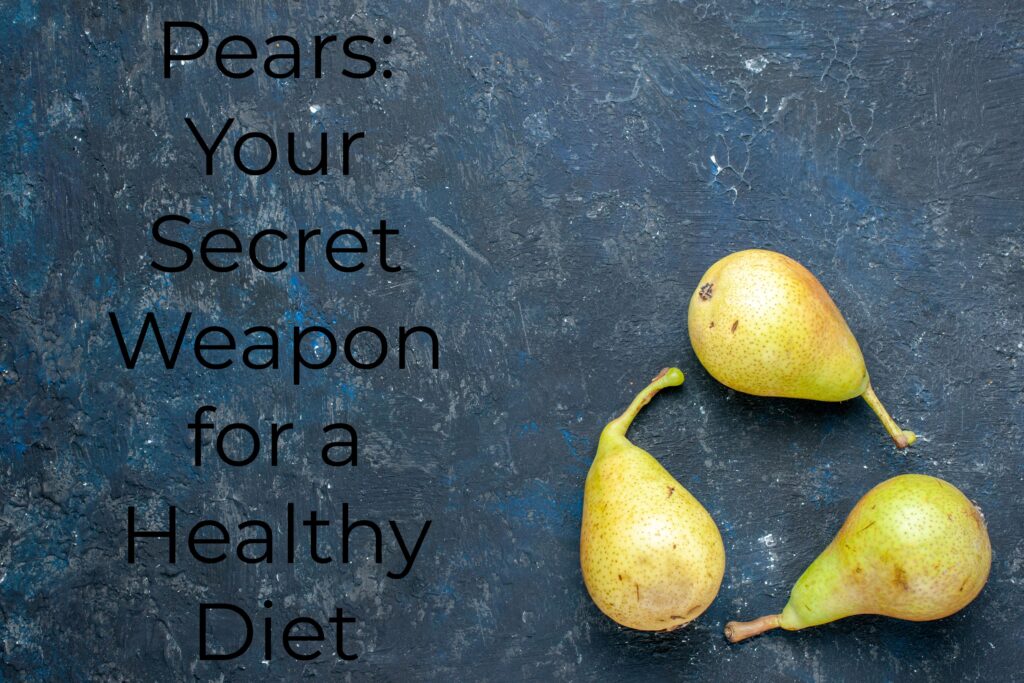
The Nutritional Power of Pears Your Secret Weapon for a Healthy Diet
There’s more to pears than just their juicy, delicious flesh. They provide a powerful nutritional punch that can help with a range of health objectives. From a single medium-sized pear, you receive:
- Approximately 100 calories • Fiber: 6 grams, or roughly 24% of the daily allowance • Vitamin C: 12% of the required daily amount • 10% of the daily recommended consumption of vitamin K • 206 milligrams of potassium
Table of Contents
Key Nutrients and Their Benefits
1. Dietary Fiber:
- Digestion: PEARs’ high soluble and insoluble fiber content helps to maintain regular bowel motions and a healthy digestive system.
- Weight management: Eating foods high in fiber, such as pears, prolongs feelings of fullness and lowers total caloric intake.
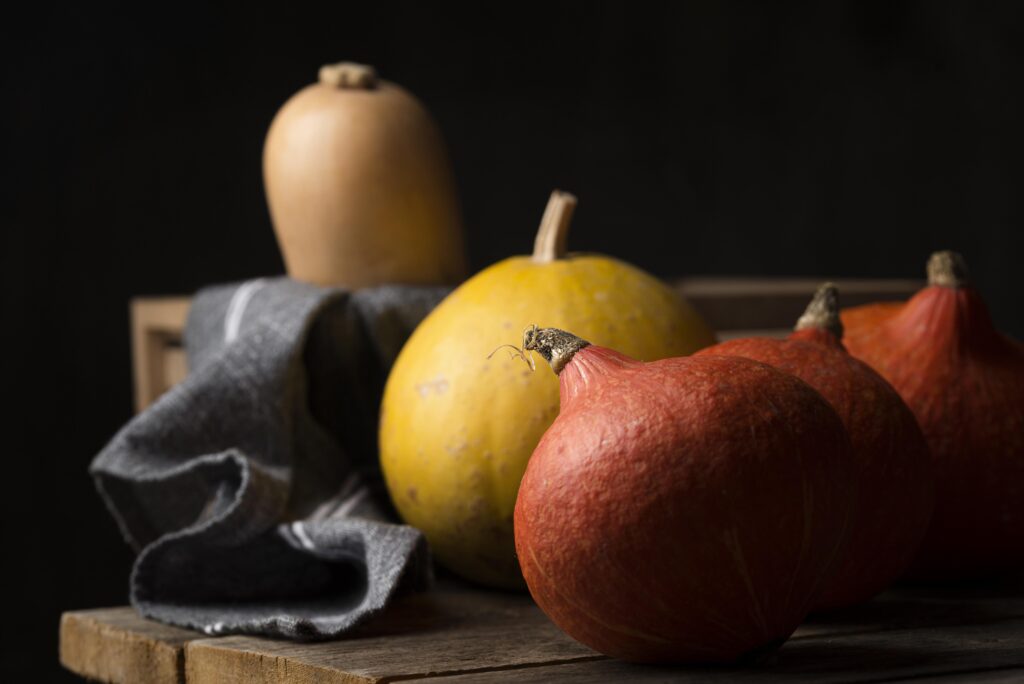
2. Vitamin C:
- Immune Support: By enhancing immunity, this potent antioxidant aids in the body’s defense against illnesses.
- Skin Health: Vitamin C helps to produce collagen, which keeps your skin looking young and firm.
3. Potassium:
- Heart Health: Potassium counteracts the detrimental effects of sodium by assisting in the regulation of blood pressure.
- muscular Function: Potassium is necessary for muscular contractions, which guarantees that your exercises are efficient and that your muscles heal rapidly.
4. Antioxidants:
- Disease Prevention: Flavonoids, one type of antioxidant found in pears, help fight oxidative stress and lower inflammation.
The Health Benefits of Pears
1. Heart Health
Pears’ fiber and potassium combine to promote cardiovascular health. Fiber helps lower bad cholesterol levels, and potassium helps keep blood pressure within normal range.Consuming pears on a regular basis can lower the risk of cardiovascular diseases and promote heart health.
2. Weight Management
Including pears in your diet might be a useful weight loss or maintenance tactic. Because of the high fiber content, you feel fuller for longer and avoid mindless snacking. Pears are also low in calories, which makes them the ideal guilt-free snack.
3. Digestive Health
Pears’ high fiber content helps to maintain a healthy digestive system and wards off constipation. Frequent ingestion can promote general gastrointestinal health and assist in keeping the digestive tract in good condition.
4. Boosted Immunity
Pears are a fantastic way to strengthen your immune system because of their high vitamin C concentration. This vitamin is essential for sustaining a robust immune response, which makes it easier for your body to fight off infections.
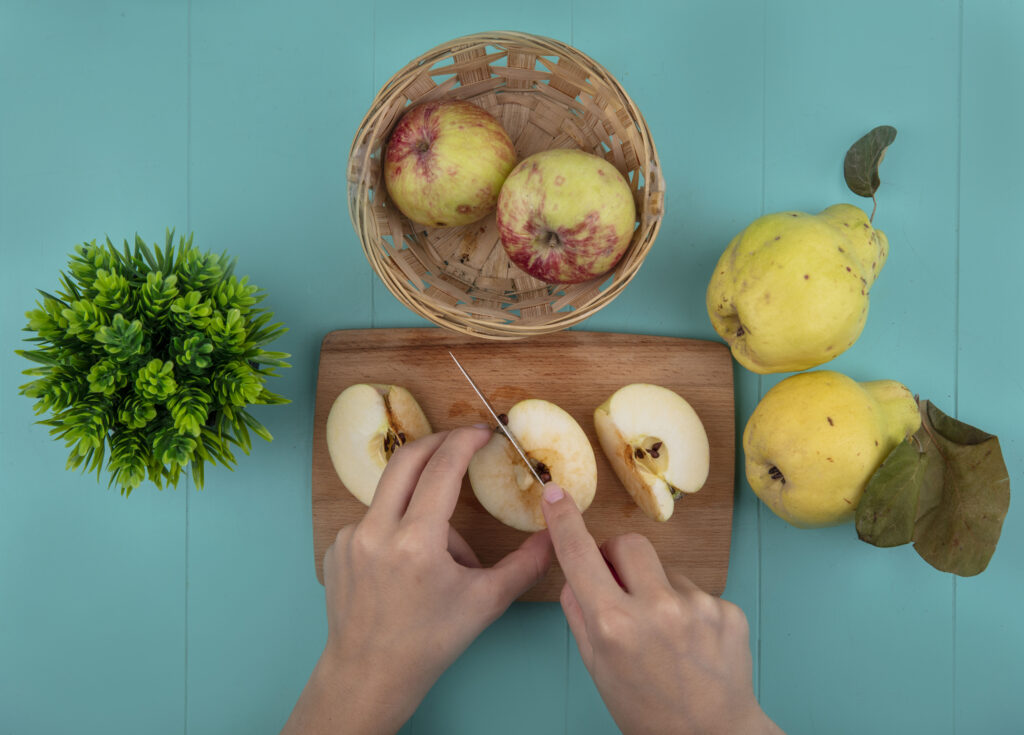
5. Enhanced Skin Health
Pears’ high vitamin C content and antioxidant qualities help maintain the radiance and youthful appearance of your skin. Antioxidants prevent free radical damage to your skin, and collagen formation is aided by vitamin C.
Delicious Pear Recipes to Try
After you’ve been persuaded of the advantages, try these tasty and simple ways to include pears in your diet.
1. Pear and Spinach Salad
Ingredients:
- Two sliced ripe pears; .three cups of fresh spinach; .one-fourth cup of crumbled feta cheese; .one-fourth cup of walnuts; .two tablespoons of balsamic vinegar; . one tablespoon of oliv oil; and salt and pepper to taste
• Instructions:
- In a big bowl, combine the spinach, feta cheese, walnuts, and sliced pears.
- Combine the olive oil, salt, pepper, and balsamic vinegar in a small bowl.
- Pour the salad with the dressing and toss to mix. Serve right away.
• 2. Baked Pears with Cinnamon and Honey
• Ingredients:
- Four ripe pears, cored and halved
- Two tsp honey
- One teaspoon of cinnamon powder
- Chopped pecans, 1/4 cup

• Instructions:
1. Set the oven temperature to 175°C or 350°F. 2. Arrange the pear halves, cut side up, in a baking 3. Sprinkle cinnamon on top of the pears and drizzle with honey.
2. Baked Pears with Cinnamon and Honey
Ingredients:
- Four ripe pears, cored and halved.
- Two tsp honey. • One tsp powdered cinnamon.
- Chopped pecans, 1/4 cup.
Instructions:
- Set the oven temperature to 175°C or 350°F.
- Arrange the pear halves, cut side up, in a baking dish.
- Add chopped pecans on top.
- Bake the pears for 20 to 25 minutes or until soft.
- Serve warm, topped with a dollop of vanilla ice cream if desired.
3. Pear Smoothie
Ingredients:
- A single ripe pear, cut and cored. • A single banana. • Half a cup of Greek yogurt.
Instructions:
- Fill a blender with the pear, banana, Greek yogurt, almond milk, honey, and grated ginger.
- Purée until silky. 3. Transfer to a glass and start sipping right away.
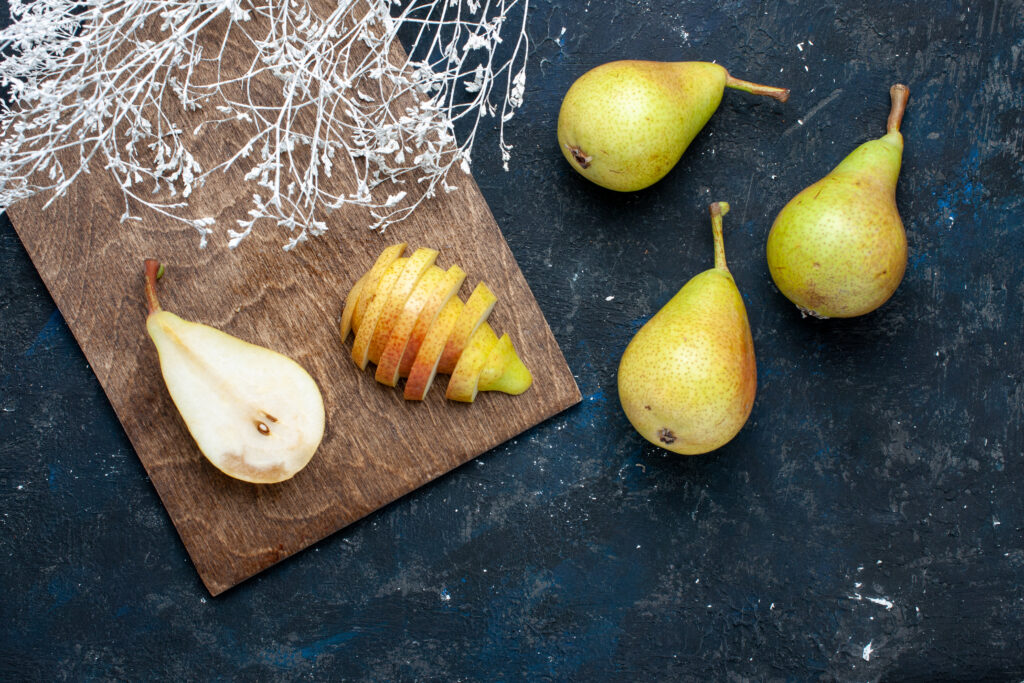
FAQs
1. Can I eat pears if I have a food allergy?
Since pears are typically regarded as hypoallergenic, most persons with food allergies can safely eat them. However, before including pears in your diet, speak with your doctor about whether you have oral allergy syndrome (OAS) or a specific fruit allergy.
2. How should I store pears to keep them fresh?
Keep unripe pears at room temperature until they are at the desired level of ripeness.When they are ripe, store them in the fridge to preserve their freshness. Generally, pears keep well in the refrigerator for up to five days.
3. What is the best way to tell if a pear is ripe?
Using your thumb, gently push the pear close to the stem to determine its ripeness. It’s ready to eat if it gives slightly. Pears ripen best right off the tree, unlike many other fruits. Thus, it’s usually a good idea to purchase them somewhat unripe.
4. Can I use pears in savory dishes?
Of course! Pears lend a pleasant sweetness to savory meals. For a different take on flavor, try adding slices to sandwiches, mixing them into salads, or serving them with cheese.
5. Are there different types of pears, and do they vary in taste?
Pears come in various varieties, such as Asian, Bosc, Anjou, and Bartlett pears. Each kind has a distinct flavor and texture. For instance, Bosc pears are firmer and denser in texture than Bartlett pears, which are luscious and delicious.
6. Can pears help with digestion?
Yes, pears’ high fiber content can facilitate digestion and ward against constipation. Pears include soluble and insoluble fibers, which generally support healthy digestion.
7. Are canned pears as nutritious as fresh pears?
Even though they may lose some of their vitamin value during the canning process, canned pears can still have some nutritional benefits. However, they frequently contain added sugars. For optimal health advantages, wherever feasible, choose fresh pears.
Conclusion
Pears are a healthy and adaptable supplement to any diet. They are a great fruit to eat if you want to control your weight, strengthen your heart, or just enjoy a tasty treat. Are you prepared for pears to become a diet mainstay? Tell us about your best pear recipes or tag us in your social network posts, including pears. Together, let’s celebrate pears and all of their health advantages!
Call to Action:
Sign up for our newsletter or schedule a consultation with one of our dietitians for more nutrition advice and wholesome cooking ideas. We’ll work together to help you reach your health objectives one mouthwatering mouthful at a time.
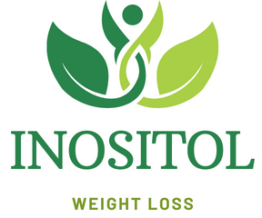
Pingback: Evolving the Future of Behavioral Health -